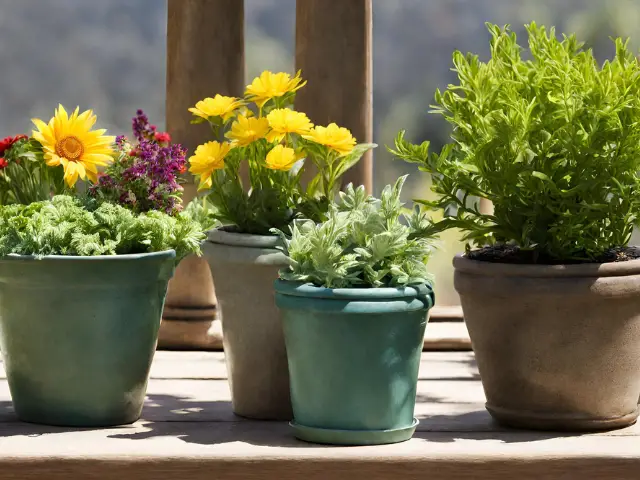Sunlight Requirements for Container Gardens
Container gardening is a popular and convenient way to enjoy gardening, especially for those who have limited space or do not have access to a traditional garden. Whether you live in an apartment or simply want to spruce up your patio or balcony, container gardens can bring life and beauty to any space. However, one crucial factor that determines the success of your container garden is sunlight.
The amount of sunlight your plants receive plays a significant role in their growth and overall health. Understanding the sunlight requirements for container gardens is essential in order to choose the right plants and ensure their well-being.
Different plants have varying sunlight needs, which can be broadly classified into three categories: full sun, partial sun/partial shade, and shade.
Plants that require full sun typically need at least six hours of direct sunlight each day. These plants thrive in bright, intense light and are best suited for south-facing balconies or any area that receives ample sunlight throughout the day. Vegetables like tomatoes, peppers, and cucumbers fall under this category, as do most flowering plants such as petunias, marigolds, and geraniums. It is important to note that without sufficient sunlight, these plants may become leggy or fail to produce flowers or fruits.
On the other hand, there are plants that prefer partial sun/partial shade conditions. These plants typically need about three to six hours of direct sunlight each day but also benefit from some shade during the hottest part of the day. Examples of such plants include impatiens, begonias, ferns, and herbs like parsley or cilantro. Balconies facing east or west often provide ideal conditions for these types of plants since they receive a mix of both direct sunlight and shade.
Lastly, there are plants that thrive in shady conditions with minimal direct sunlight. If you have a north-facing balcony or an area with limited exposure to sunlight throughout the day, these shade-loving plants are perfect for your container garden. Hostas, ferns, coleus, and fuchsias are excellent choices that will flourish in these conditions. While they may not need direct sunlight, it is still important to provide them with bright indirect light to ensure proper growth.
When planning your container garden, it is crucial to consider the specific sunlight requirements of each plant you wish to grow. Take into account the direction in which your outdoor space faces and how much direct sunlight it receives during various times of the day. By understanding these factors, you can make informed decisions about plant selection and placement.
In addition to selecting the right plants for your sunlight conditions, you should also consider the potential challenges that may arise. For instance, if your balcony or patio receives intense afternoon sun, you may need to provide some shade or use reflective materials to reduce heat buildup and prevent wilting or scorching of leaves.
Furthermore, if you have limited access to natural sunlight due to high-rise buildings or dense tree cover, you can supplement with artificial lighting. LED grow lights can be a great option for providing the necessary light spectrum and intensity required by your plants.
In conclusion, successful container gardening heavily relies on understanding the sunlight requirements of your plants. Choosing plants that align with the amount of sunlight available in your outdoor space will ensure their optimal growth and overall health. Remember to consider not only their daily exposure but also any potential challenges that may arise due to intense sun or limited natural light. With proper planning and care, you can create a thriving container garden that brings joy and beauty to any small space.













